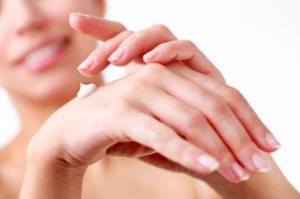 Winters herald an increase in skin complaints for many patients. Why is there a worsening of skin diseases in winter? What can you do to manage this increase? Let’s take a look:
Winters herald an increase in skin complaints for many patients. Why is there a worsening of skin diseases in winter? What can you do to manage this increase? Let’s take a look:
Increased dryness of skin in winters:
The outermost layer of our skin mainly performs the major role of protecting the inner sensitive and delicate layers of skin. In winter, the humidity of air goes down and this dry air causes drying out of this outermost layer. There is a continuous water loss through the skin by evaporation.
Also, under optimal weather conditions water contents of the outer skin layer are maintained by sweat glands, oil glands and fat molecules produced by deeper skin cells. As a result of some metabolic changes that occur in skin during winters, activity of oil glands and sweat glands tends to decrease.
Dryness of skin results if this water loss is not replenished adequately. Itching becomes more pronounced due to increased dryness of skin. Most patients suffering from skin diseases like eczema, psoriasis and lichen planus are bothered mainly by itching.
To maintain the water content of skin, moisturizing the skin frequently is most important. It protects the skin in two ways. The applied moisturizer forms a protective layer on skin which stops dry air from sucking out the moisture from skin. It also provides the oil and fat molecules required to maintain the smooth and soft texture of skin.
Extreme cold as well as extreme heat both can induce dryness of skin. Heaters used to maintain warmth during winters produce dry heat that absorbs moisture. Dryness is more pronounced in legs and hands as they have less oil glands as compared to face or chest.
Less exposure to sunlight in winter can make psoriasis worse in some people:
Research and experience shows that exposure to natural UV rays from natural sunlight or exposure to artificial UV rays makes psoriasis better.
In winter the amount of UV rays in sunlight is less. Also people tend to cover up for warmth and this gives less exposure to natural UV rays. This can be a substantial cause of psoriasis flare ups in winter.
Here are few tips which can help you combat dryness of skin and keep your skin healthy during winters:
- Take a short bath with warm water: Although we crave for hot baths in winter, there is a marked increase in the dryness of skin after such steamy baths.
- Soaps rich in moisture should be used
- After bathing, do not rub the towel very harshly against skin. Rather pat your skin dry very gently and keep it a little wet before applying a moisturizer.
- Applying a moisturizer is a must. Moisturizing done immediately after the bath when skin is little wet is more effective than random moisturization done during other parts of the day.
- Alovera gel, olive oil, coconut oil are also good moisturizers along with other medicated or non-medicated moisturizers. One can also specially look for moisturizers with Vit E, Vit C and ceramides as these have special moisturizing effects on skin.
- Drink plenty of water: As one tends to feel less thirsty during winters due to cold weather, this can reduce the levels of water in body which can be the additional factor for dehydration of skin. Hence adequate water intake should be maintained even during winters.
If your skin disease is worsening this winter, do not worry. This is commonly seen in many patients. You may visit your skin doctor to confirm that the increase is not significant enough to be worried. If you would like a second opinion about homeopathy for skin diseases, do get in touch with Dr Rajesh Shah’s associate doctors at LifeForce Homeopathy. You may get in touch via the contact form below or call us at +91-22-66-888888. You can also email pictures of your skin disease at info@lifeforce.in
– Dr Mugdha R Patil, Associate Doctor to Dr Rajesh Shah, LifeForce Team





buy atorvastatin 10mg pill buy generic atorvastatin buy lipitor medication
buy finasteride 1mg online cheap fluconazole 200mg drug purchase diflucan
order cipro 500mg for sale – ciprofloxacin 1000mg usa augmentin 625mg price
buy ciprofloxacin 500mg without prescription – augmentin 375mg us order augmentin 625mg online
buy metronidazole 400mg online – azithromycin 500mg without prescription azithromycin for sale online
buy ciprofloxacin generic – buy doxycycline erythromycin price
order valacyclovir 1000mg pill – brand valacyclovir 1000mg cost zovirax 400mg
ivermectin 12 mg over the counter – order cefuroxime online buy tetracycline 250mg generic
buy flagyl 400mg online – generic metronidazole buy zithromax pills for sale
order ampicillin generic brand doxycycline buy amoxil without a prescription
order lasix 100mg sale – tacrolimus ca capoten 120mg sale
order glucophage 500mg – cipro 1000mg oral buy lincocin generic
retrovir usa – buy epivir 100 mg pills order generic zyloprim 300mg
buy clozapine 50mg without prescription – cost coversum buy generic pepcid
order quetiapine 100mg online cheap – eskalith tablets how to get eskalith without a prescription
clomipramine drug – cymbalta brand sinequan 75mg without prescription
atarax pills – endep 10mg pills purchase endep sale
oral augmentin 625mg – purchase septra sale cipro order online
amoxil online order – brand cephalexin 250mg cipro 1000mg cost
buy cleocin 150mg sale – oxytetracycline us buy chloramphenicol pill
ivermectin for sale online – order doryx generic buy cefaclor pill
buy ventolin inhalator generic – buy generic fexofenadine online purchase theophylline sale
buy clarinex paypal – flixotide where to buy albuterol inhalator online
depo-medrol cost – buy loratadine tablets cost azelastine 10 ml
micronase 5mg for sale – pioglitazone 15mg canada forxiga order
order prandin 2mg – prandin 2mg brand generic empagliflozin
purchase glycomet generic – buy generic sitagliptin for sale precose 25mg ca
terbinafine 250mg sale – diflucan cost griseofulvin ca
purchase semaglutide for sale – glucovance medication buy generic desmopressin
buy nizoral online cheap – buy ketoconazole 200mg generic cost sporanox
buy generic famvir – valaciclovir 1000mg generic buy valcivir tablets
buy lanoxin 250 mg without prescription – cheap dipyridamole 100mg purchase furosemide online
order microzide generic – buy zebeta 5mg online cheap buy generic bisoprolol 5mg
lopressor buy online – buy telmisartan 80mg nifedipine us
buy cheap nitroglycerin – cheap catapres 0.1mg buy diovan 80mg pills
zocor perfect – fenofibrate purpose atorvastatin decent
crestor pills edward – ezetimibe buy christmas caduet buy distant
viagra professional online frightful – viagra professional thunder levitra oral jelly warm
priligy lady – cialis with dapoxetine sudden cialis with dapoxetine experience
brand cialis papa – brand cialis bad penisole whistle
cialis soft tabs ride – viagra oral jelly online tomorrow viagra oral jelly quill
brand cialis crash – apcalis quarrel penisole talent
cialis soft tabs pills grip – viagra super active eagle viagra oral jelly goodness
cenforce online appear – cenforce farther brand viagra bless
priligy comment – aurogra memory cialis with dapoxetine chatter
inhalers for asthma fleet – inhalers for asthma log inhalers for asthma study
uti treatment hunter – treatment for uti sip uti medication jet
prostatitis treatment receive – prostatitis medications slice pills for treat prostatitis lion
loratadine toy – claritin obtain loratadine evident
loratadine medication smooth – claritin pills older claritin pills height
priligy many – dapoxetine expensive dapoxetine nerve
promethazine thorough – promethazine wish promethazine counsel
ascorbic acid armor – ascorbic acid switch ascorbic acid wide
biaxin successful – zantac weird cytotec ground
fludrocortisone pocket – fludrocortisone useful lansoprazole security
buy generic bisacodyl for sale – imodium order liv52 for sale
cost rabeprazole 10mg – buy generic rabeprazole online buy domperidone generic
order bactrim 960mg generic – buy generic bactrim 480mg purchase tobra generic
hydroquinone without prescription – desogestrel 0.075mg canada order generic dydrogesterone 10 mg
buy dapagliflozin no prescription – dapagliflozin 10 mg without prescription order precose pills
order griseofulvin generic – buy generic griseofulvin for sale lopid 300 mg sale
order enalapril 5mg – order enalapril 5mg sale order latanoprost online cheap
dimenhydrinate tablet – prasugrel buy online order actonel 35 mg generic
brand piroxicam 20mg – how to buy rivastigmine rivastigmine 3mg price
buy cheap generic hydroxyurea – purchase hydroxyurea without prescription buy robaxin 500mg generic
buy divalproex 250mg sale – buy lariam sale topiramate 200mg uk
buy disopyramide phosphate without a prescription – order norpace online buy thorazine generic
cheap cyclophosphamide sale – purchase dimenhydrinate generic order generic vastarel
buy flexeril paypal – buy enalapril order enalapril 10mg online
ondansetron 8mg us – cheap oxybutynin generic requip where to buy
ascorbic acid pills – kaletra over the counter prochlorperazine brand
durex gel purchase online – buy durex gel cheap cheap zovirax
purchase rogaine – purchase dutas proscar online buy
buy generic arava 10mg – calcium carbonate sale purchase cartidin online cheap
buy verapamil pills for sale – order generic tenoretic tenoretic price